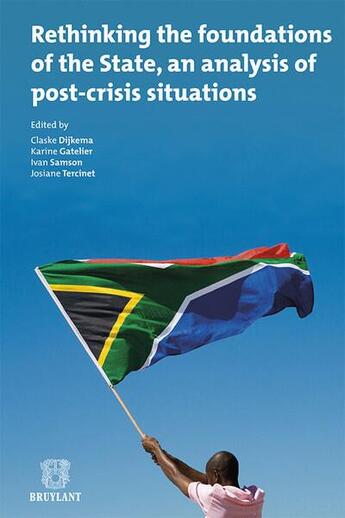-
Date de parution : 07/12/2011
-
Editeur :
Bruylant
-
EAN : 9782802735137
-
Série :
(-)
-
Support :
Papier
Résumé:
Consensus is growing that the application of the western model of the Nation-State in post-crisis contexts is problematic.
Rather than on methods of State reform or Statebuilding, the focus of this volume is on the model of the State and its transformation. While international and national... Voir plus
Consensus is growing that the application of the western model of the Nation-State in post-crisis contexts is problematic.
Rather than on methods of State reform or Statebuilding, the focus of this volume is on the model of the State and its transformation. While international and national actors are undoubtedly the major players in State formation, they are not the only actors in this process. Local and regional actors at the sub-State level have received much less attention, but are central players in forming or re-forming governance structures.
The authorities that take over when States fait, and ultimately collapse, include the conflicting parties such as military faction leaders ; remnants of the former State administration ; revitalized traditional authorities ; religious courts ; and local businessmen. These actors will continue or begin to exercise authority as " functional equivalents " of State structures, for example in the sectors of security and social services, and at times will aspire to replace the State.
Civil conflict fragments State power away from the centre andbenefits private actors such as political, military, religious, social leaders on the basis of sub-national communities. At the regional or international levels the presence of cross-border identities (be it of an ethnic, religious, linguistic or other nature) may represent further competition for the State and can increase interference in State affairs, for example through military interference or diaspora support from outside State borders.
The concept of "transformation" is used rather than"reform" to describe the changes a post-crisis State goes through. The 'trans' in transformation implies that the form a State takes cari go beyond the pre-existant State and that this is in many ways is an involuntary process. This volume attempts to rethink the foundation of post-crisis States in four parts and an epilogue. The different authors deal with the rise of "parallel", "alternative" or "hybrid" systems that present an adaptation made in response to the prolonged absence of central government.
This form of governance is driven by the evolving rote of coalitions, business groups, traditional authorities, and civic groups. Moreover, one can observe new forms and new places of expression for citizenships and for the shaping of the political scene.
Donner votre avis














